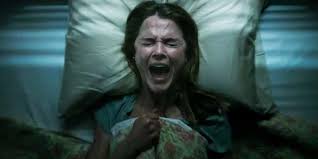新埔捷運站1號出口 旁邊7-11巷子進入20公尺 看到夏朵美髮左轉

幽默感 與 異性緣
How Humor Can Change Your Relationship
psychologytoday.
Volodymyr Tverdokhlib/Shutterstock
A sense of humor is an attractive trait. There is abundant cross cultural evidence that shows that being funny makes you more desirable as a mate, especially if you are a man. But once the initial flirting is over, and you are in a romantic relationship, how large a role does humor play?
For dating couples, the use of positive humor (for example, using humor to cheer up your date) can positively contribute to relationship satisfaction. The use of aggressive humor, on the other hand (teasing and making fun of your partner) has the opposite effect. These feelings can fluctuate on a day-to-day basis, depending on each partner’s use of humor.
For long-term relationships, such as in marriages, couples generally share a similar sense of humor — although similarities in sense of humor are not associated with greater marital satisfaction, nor with longer marriages. Perhaps not surprisingly, the research that resulted in this finding also found that couples with fewer children laugh more, compared to couples with a larger number of children.
In another study, conducted with 3,000 married couples from five countries, both husbands and wives were found to be happier with a humorous partner, but this trait was reported to be more important for the marital satisfaction of the wives than the husbands. Interestingly, both husbands and wives thought that the husband was humorous more often. Regardless, married couples overwhelmingly say that humor has a positive impact on their marriages.
Conflict resolution
But what happens when things aren’t going so well? Humor is a great icebreaker and a social lubricant, but can it also help resolve conflict in marriages? In one study, researchers observed 60 newlywed couples when they discussed a problem in their marriage. They coded how much humor was used in the conversation. The couples also completed a measure of life stress. What researchers found when they followed up 18 months later was quite surprising. In couples that reported high stress, the more the husband used humor, the greater the chance the couple would separate or divorce.
By contrast, in a similar study with 130 married couples, a wife’s use of humor predicted greater marital stability over six years, but only if the humor led to a decrease in their husband’s heart rate. In other words, if the humor calms the husbands, then it might be beneficial to their marriages.
These two studies show the disparate function of humor for men and women. For men, humor might serve as a way to distract from dealing with problems in the relationship, perhaps in an attempt to reduce their own anxiety. Women, on the other hand, may use humor to create a more relaxed atmosphere that can facilitate reconciliation.
Laughing at you, not with you
In recent years, there has been much research on the topics of gelotophobia (the fear of being laughed at), gelotophilia (the joy of being laughed at), and katagelasticism (the joy of laughing at others). One study with a sample of 154 heterosexual young couples, who had been together an average of six years, examined whether any of these dispositions had a bearing on relationship satisfaction. You might expect that a person who likes being laughed at would be a good match with a partner that likes laughing at others, and this is indeed what the researchers found, though the correlation was not very strong. Overall, partners in romantic relationships tended to have similar preferences — they both liked being laughed at or to laugh at others at similar levels.
Looking at relationship satisfaction, people who scored high on gelotophobia reported the lowest satisfaction in their relationships, and felt less physically attractive and less sexually satisfied, compared to low gelotophobians. This makes sense, as being in an intimate relationship requires opening up and being more vulnerable, something that may feel uncomfortable for a person fearing being judged and laughed at.
An interesting finding was that for men, having a gelotophobic partner reduced their own sexual satisfaction in relationships, probably because their partner’s insecurities make them less appealing. In contrast, women who loved being laughed at (gelotophilians) were more attracted to and enjoyed higher sexual satisfaction with their partner. No such effect was found with men. Also interesting was the finding that joy of laughing at others did not correlate with relationship satisfaction.
Humor and sex
Looking deeper into the issue of sexual satisfaction, women appear to have the edge. Women who have humorous partners enjoy more and stronger orgasms, compared to women who have less funny partners. Women with funnier partners also initiated sex more often and had more sex in general (indeed, for very good reasons). Such effects have not been found in women with higher humor production (the ability to come up with funny ideas on the spot), perhaps because it requires less effort to satisfy the sexual desire of men.
This result may highlight sex differences in light of sexual selection, where higher reproduction costs for women (being pregnant, breastfeeding, shorter reproductive window) make them choosier than men. In contrast, men with good senses of humor may signal their intelligence, creativity, warmth, and how friendly they are — traits that are important in any relationship, especially romantic ones, and are more valuable for women.

為什麼 愛看恐怖片
Why do we like watching horror films?
Sigrun Dancke Skaare
"The first of the three main reasons we like watching horror films is quite elementary," says film scholar Søren Birkvad of Inland Norway University of Applied Sciences: "Horror films entertain us".
We like watching horror films simply because it's entertaining. It acts as a means to fend off boredom.
Personality tests reveal that those who are bored easily often score higher than others on a trait called “sensation seeking.” Several studies show that those who score high in regard to this trait, show an increased liking of horror films.
Thus, some people jump off mountains with parachutes, while others go to amusement parks to enjoy roller coaster rides. Horror film enthusiasts watch films.
Explaining evil
Another reason we are drawn to the darkest of film darkness is that the horror film is a way of unravelling evil.
"Formerly religious explanations of evil are nowadays given a diagnosis. One subjects the evil actions to scientific or psychotherapeutic explanatory models," says Birkvad.
We are familiar with the diagnoses from, for example, forensic psychiatry where different psychoses or personality disorders are assessed from a psychological and social perspective.
In society as a whole, little or no discussion revolves around evil anymore. We simply do not believe in the demonic as a force in itself, perhaps with the exception of some extremely religious environments, Birkvad points out.
However, in popular culture – and especially in the world of film – evil is presented as an independent phenomenon through the horror genre.
"Evil is reserved for this genre of popular culture because we no longer believe in the compelling explanatory models that the local priest once gave us," says Birkvad.
Ideas and myths like Frankenstein provide us with, for example, an explanation for human technological arrogance, where the man-made monster turns on its own creator.
Dr Jekyll and Mr Hyde shows us the human divide of good and bad, while more or less Freud-inspired films and TV series such as "Psycho" and "Twin Peaks" revolve around our notions of dangerous sexuality.
Testing limits within safe surroundings
A third and last reason, which Søren Birkvad addresses, is what he calls the anthropological and therapeutic utility of horror film; It teaches us to deal with our own anxiety.
This occurs partly through the familiar frameworks that are found in every proper genre film – including the horror film – and partly through the rituals we build around the viewing experience.
"We see it in the way teenage boys occasionally use horror films as part of a kind of manhood test where it's about keeping one’s composure as much as possible," says Birkvad.
In this perspective, the horror film becomes a way to test our personal and collective limits in a safe environment.
If it gets too scary, you can just cover your ears, put your hands in front of your eyes, ease the tension with an amusing quip, or turn to your popcorn bowl for comfort.
Psychologist Svein Åge Kjøs Johnsen adds:
"In psychology we call this activation of a feeling “emotional regulation.” By watching horror films one can have a sense of control over both the situation, or the viewing experience, and over the feeling of fear. Watching a scary film may possibly also function as a distraction from other feelings."
Sigmund Freud provides us with three possible explanations for why we experience things that behave abnormally as intimidating:
1. We nowadays live in an enlightened time, but thoughts like "what if there actually are ghosts" create excitement. As such, seeking this kind of experiences may be a kind of logical reality-check.
2. Such experiences may evoke different types of repressed complexes or ideas that we may wish to process.
3. Freud claims that most people are never completely freed from "infantile anxiety," that is, fear of darkness, loneliness and silence. He provides no direct explanation as to why we would wish to seek out something that reminds us of such infantile anxiety, but it could be related to curiosity.
Roots in mythical narratives
"The horror film is one of three basic genres in film. These consist of comedy, melodrama, and thriller – or horror film," says film scholar Birkvad.
All of the above appeal to basic feelings in us like humour, empathy, discomfort or excitement. In addition, there are porn films, which aim to evoke sexual arousal.
The horror film has its roots in mythical performances and presentations, but also in the Gothic horror literature of the 1800s with its relatively modern myths such as Mary Shelley's "Frankenstein," Robert Louis Stevenson's "Dr Jekyll and Mr Hyde,” and Bram Stoker's vampire tale “Dracula.”
Driven by unknown forces
Psychologist Kjøs Johnsen also notes Sigmund Freud's term "Das Unheimliche," the uncanny, as a common theme for horror films.
The term refers to how everyday situations, or objects, suddenly seem to be ruled by unknown forces. Frightening.
"In several films by David Lynch, and in the "Twin Peaks" series, it seems that this principle has been used almost directly," says Kjøs Johnsen.
Scary measures
The horror film is one of the oldest film genres. Dating back to the silent film period of the previous turn of the century, we have been dreadfully delighted with this particular type of film.
The German silent film "The Cabinet of Dr. Caligari" from 1920, is considered a milestone in cinematic history.
The film utilized previously unknown visual techniques where shadows were highlighted to create an uncertain and disoriented atmosphere. Many of the shadows in the film were painted directly on the set, which helped highlight the unnatural and creepy mood.










0 意見:
張貼留言